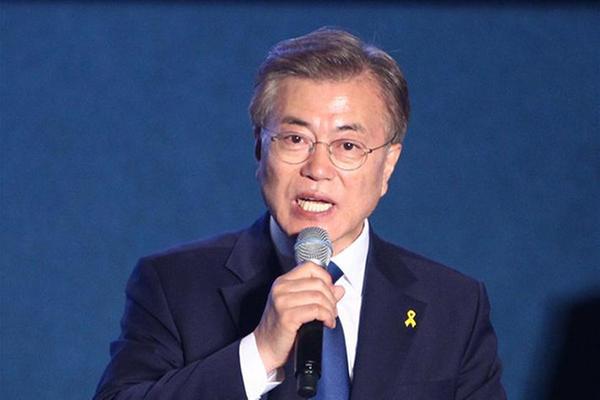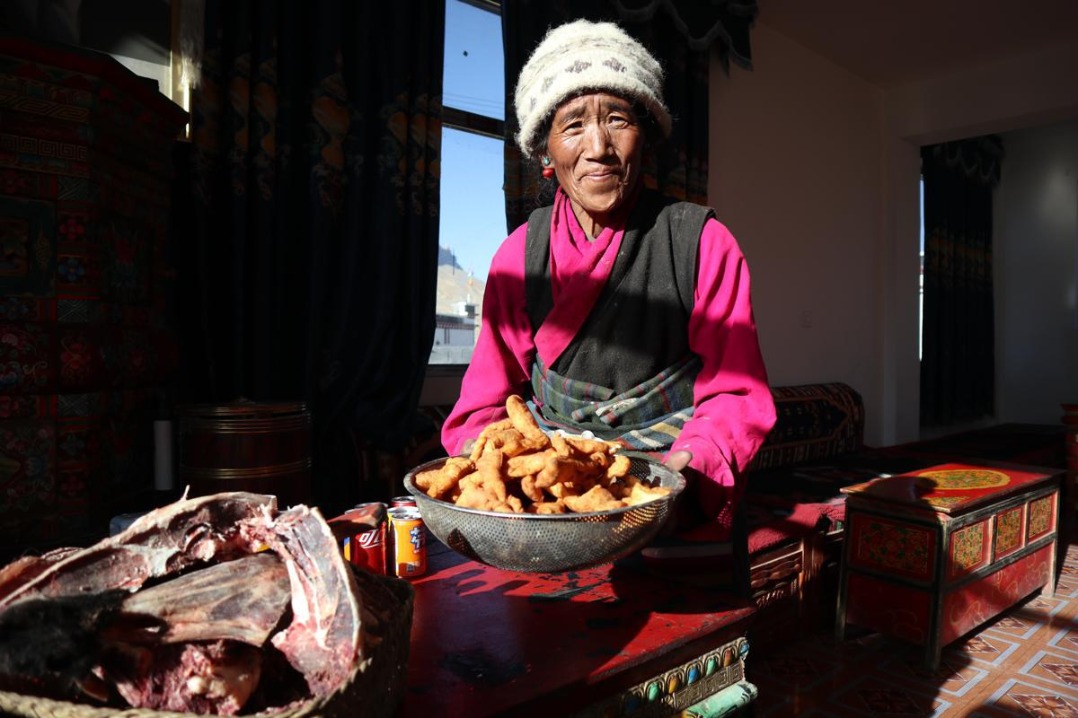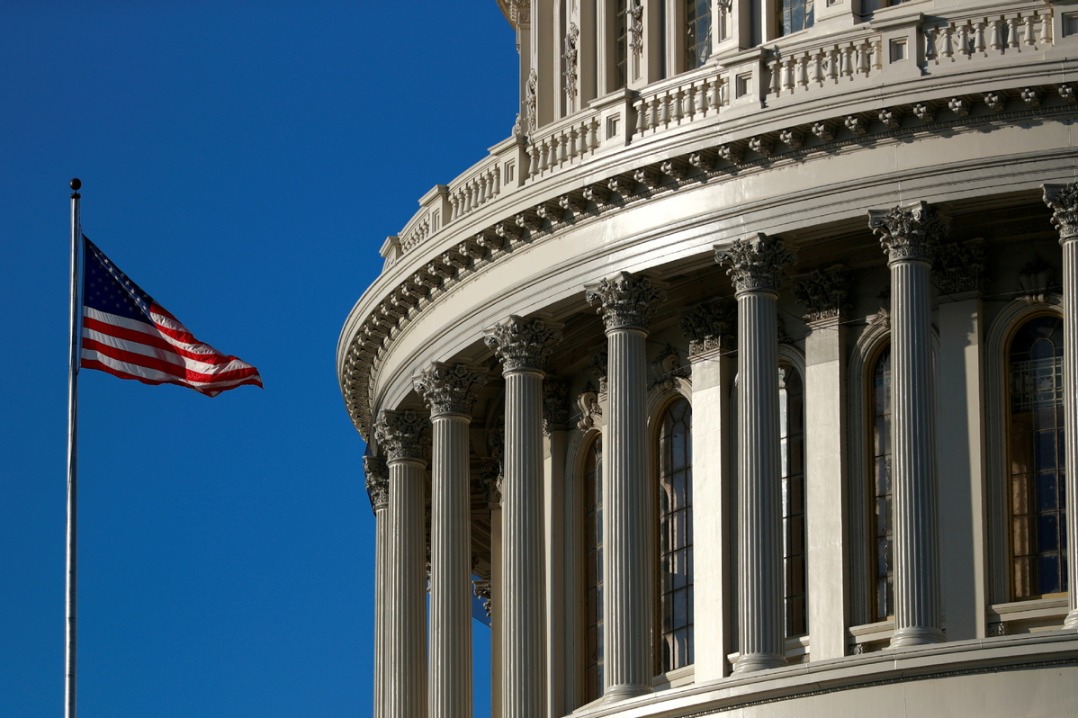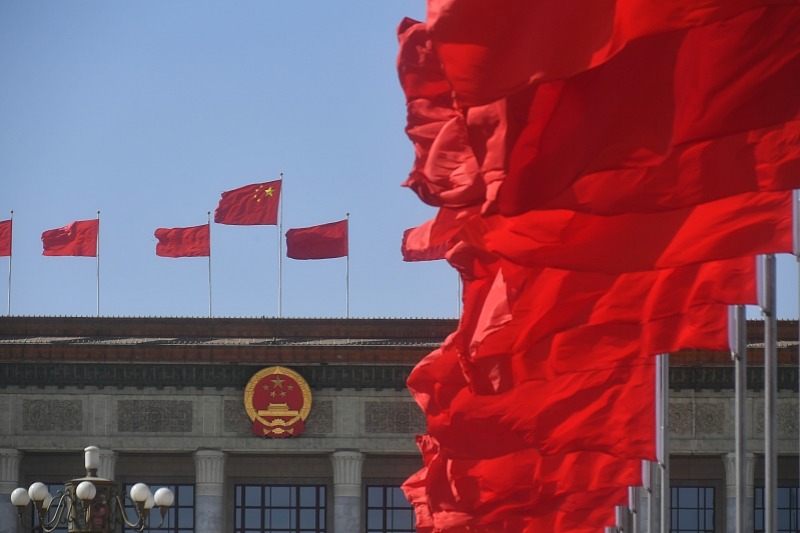Feeler to Moon won't make it easy for Abe to win over Seoul

 |
| Moon Jae-in of the liberal Minjoo Party speaks during a celebration event in Seoul, South Korea, on May 9, 2017. [Photo/Xinhua] |
Japanese media and foreign affairs pundits are doing the guesswork: the United States will be the first country newly elected Republic of Korea President Moon Jae-in will visit, followed by China, Russia and Japan.
The Japanese government is eager to reach out to Moon-it arranged a telephone conversation between Japanese Prime Minister Shinzo Abe and Moon on Thursday. Tokyo also aims to organize a meeting between the two leaders on the sidelines of international conferences such as the G20 Summit in Hamburg, Germany, in July and the United Nations General Assembly in New York in September.
Abe's office issued a statement congratulating Moon on his election victory and saying Abe wants to meet with him at an early date for a frank exchange of views and to work together to develop a future-oriented bilateral relationship.
There are reasons why Abe wants to "establish" ties with the Moon administration eagerly. First, Japan-ROK ties are strained because of the issue of "comfort women" (women and girls forced into sexual slavery by the Japanese army before and during World War II). The two countries inked an agreement in 2015 to resolve the issue. The settlement included a written apology from Abe and a pledge by Tokyo to contribute $8.9 million to a foundation established by Seoul to support the surviving "comfort women".
The "final" and "irreversible" solution was to absolve Japan of all the responsibility and liability for the "comfort women". In return, Japan asked the ROK to remove the statue of a "comfort woman" from in front of the Japanese embassy in Seoul.
Polls, however, show the majority of the people in the ROK are against the deal. And during his campaign trail, Moon claimed the agreement does not reflect the views of those women who were humiliated by the Japanese army and vowed to renegotiate the issue with Japan.
Moon won 41 percent of the vote in the election. But if he changes his stance on the "comfort women" issue, he could face a backlash from the voters.
Japanese Chief Cabinet Secretary Yoshihide Suga, however, has said Tokyo will not renegotiate the agreement, which he claims is a "promise" made by the two countries.
Second, Abe and Moon are divided in their policies toward the Democratic People's Republic of Korea. Abe seems interested in containing the DPRK, saying "dialogue for the sake of dialogue is meaningless". In contrast, Moon intends to engage with the DPRK and has said he is even willing to travel to Pyongyang "under the right circumstances". Which prompted The Japan Times to say the prospect of a rupture between the United States, Japan and the ROK is now "real".
Third, the territorial dispute over a pair of isles-called Dokdo in the ROK and Takeshima in Japan and which Moon visited in July 2016-could also be a reason why Abe is so eager to build ties with the new ROK administration,.
And last, since the Japanese government does not know much about Moon, it wants to reach out to him before he announces any new policies. Japan sent its ambassador, Yasumasa Nagamine, back to Seoul in early April to study and develop ties with the successor to impeached and ousted president Park Geun-hye. Japan had recalled Nagamine in January in response to the installation of a girl's statue, a symbol of "comfort women", in front of the Japanese consulate in Busan. On April 28, Nagamine met with Moon's diplomatic advisory group, which said Moon wants to have talks with Abe at an early stage.
Moon's victory, it seems, will lead to a shift in the ROK's foreign policy, which will have an impact on the country's ties with its neighbors and allies while also influencing the situation in East Asia.
And given their differences over the DPRK, and "comfort women" and other issues, Abe and Moon will find it difficult to put bilateral ties back on track.
The author is China Daily Tokyo bureau chief.
caihong@chinadaily.com.cn


































